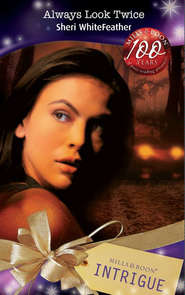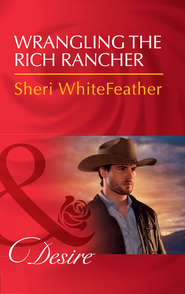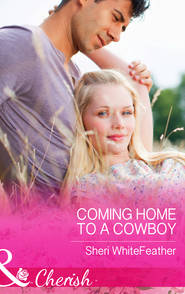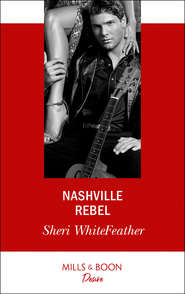По всем вопросам обращайтесь на: info@litportal.ru
(©) 2003-2024.
✖
The Ashtons: Walker, Ford & Mercedes: Betrayed Birthright / Mistaken for a Mistress / Condition of Marriage
Автор
Год написания книги
2019
Настройки чтения
Размер шрифта
Высота строк
Поля
He glanced away. He’d been staring at her from the moment they’d met. Of course, she’d done her fair share of locking gazes with him, too.
“As for pointing,” she went on to say, “the Lakota gesture with their lips.”
He frowned. “Their lips?”
“Like this?” She moved her mouth in his direction.
He tried it and made her laugh.
“You’re overdoing it, Walker. You look like Mick Jagger.”
He laughed, too. “What other social laws should I know about?” he asked, deciding he enjoyed her company, her relaxed sense of humor.
“Addressing a family member by a kinship term is part of the old way.”
“Like mother, son, daughter? That sort of thing?”
“Yes. But some of the terms are quite specific. Older brother. Younger sister. Male to female. Female to male.”
He leaned back in his seat, knowing this would be important to Charlotte. “What’s the term for younger sister?”
“From a male to a female? Tanksi, I think. Sometimes I get confused. I’m still learning the language.”
Walker nodded. He suspected that Mary hadn’t raised Tamra in a traditional manner. Not after the things she’d said about his mother avoiding the Hunka and other Lakota ceremonies. “Does my mom speak the language?”
“She’s not fluent, but she’s working on it. We’re both trying to make up for the past. For the years we didn’t embrace our culture.” She kept her hands on the steering wheel. “But we’re still not overly traditional. We just do the best we can, trying to respect others.”
Walker tried to picture Tamra in San Francisco, far away from the Lakota. Knowing that she’d chosen SFSU because of him and Charlotte made him feel closer to her. But it made him uncomfortable, too. She’d grown up in his shadow, and now he was struggling to survive in hers.
“Are their different types of Sioux?” he asked, still trying to absorb his culture. “Or are they all Lakota?”
“There are three branches,” she responded. “Lakota, Dakota and Nakota, who are also called the Yankton Sioux.”
“So where does Oglala come into it?”
“It’s one of the seven Lakota bands. It means ‘they scatter their own’ or ‘dust scatters.’” She sent him a half-cocked smile. “But the Oglala have seven bands of their own, too.”
“Okay, now you’re confusing me.” He shook his head and laughed. “So much for Indian 101. This is turning into an advanced course.”
She laughed, too. “It’s not as complicated as it sounds.”
“If you say so.” He glanced out the window and noticed they were on the reservation, heading toward the town of Pine Ridge. He recognized the road.
“What kind of work do you do?” he asked. “What keeps you busy around here?”
“I’m the director of volunteer services for a local nonprofit organization. We supply food and clothing to people on the reservation.”
He raised his eyebrows. “An Indian charity?” Was that the extent of her life? Everything Lakota?
“It’s important,” she countered. “It’s meaningful.”
“Yes, but being the director of volunteer services doesn’t require a marketing degree. Sounds like a waste of your college years to me.”
She gave him a quick, sharp look. “I coordinate media events, too.”
Small-time stuff, he imagined.
By the time they arrived in downtown Pine Ridge, tension buzzed between them. So much for enjoying her company, he thought. For her easy sense of humor. But he supposed it was his fault. He’d criticized her job.
He considered apologizing, then decided that would be dishonest. Her education wasn’t being utilized, not to its full potential. She’d cheated herself by coming back to the reservation, by living on her homeland.
The town of Pine Ridge had one traffic light and four water towers. There was plenty of activity, generated from the Billy Mills Auditorium, tribal offices and the Oglala Department of Public Safety, but Walker noticed that a lot of people were doing nothing, just sitting on a bench, talking away their boredom.
Tamra stopped for gas at Big Bat’s, a convenience store, eatery and gathering place for locals. He’d heard it was Lakota owned and operated, unlike some of the businesses on Pine Ridge. He had to admit it was impressive, something he hadn’t expected when he’d first arrived. But even so, he hadn’t been inclined to hang out there.
The pizza place was in town, too. As well as a taco stand and a market.
“Are you still interested in having pizza with me?” he asked, as they left the gas station. “Or did I blow it?”
“I’ll eat with you. But after we go by my friend’s house, remember?”
Yeah, he remembered. “Is this a traditional friend? An elder? Should I avoid eye contact?”
“Michele is the same age as me. We went to high school together, and she won’t care if you stare at her. She’ll probably like it.”
A smile twitched his lips. “The way you do?”
“I never said that.”
“You didn’t have to.”
She ignored his last comment, so they drove in silence, past empty fields and into a hodge-podge of unattractive houses.
“So what’s the deal with Michele?” he wanted to know. “Why are we visiting her?”
“I’m loaning her some money. Her daughter’s birthday is coming up, and she’s short right now.”
He looked out the window, saw sporadic rows of wire fences, garments hanging on outdated clotheslines. “Is she on welfare?”
“She’s a single mom. And, yes, she receives Aid to Dependent Children.” Tamra’s truck rattled on the roughly paved road. “Does it matter?”
“I just wondered.” He couldn’t imagine not having any money for your child’s birthday. But he knew his parents had been destitute at the time his dad died. If he looked deep within himself, he could recall the shame it had caused him, the feeling of despair.
For Walker there had been nothing worse than being poor.
Michele’s house was a pale-blue structure with a set of worn-out steps leading to the front door. It was, Walker thought, a stark contrast to the diversity of the land. The grassy plains, rolling hills, buttes and mesas. The beauty he’d refused to appreciate.
A little girl, maybe three or four years old, sat on the steps, with a loyal dog, a mutt of some kind, snuggled beside her.











